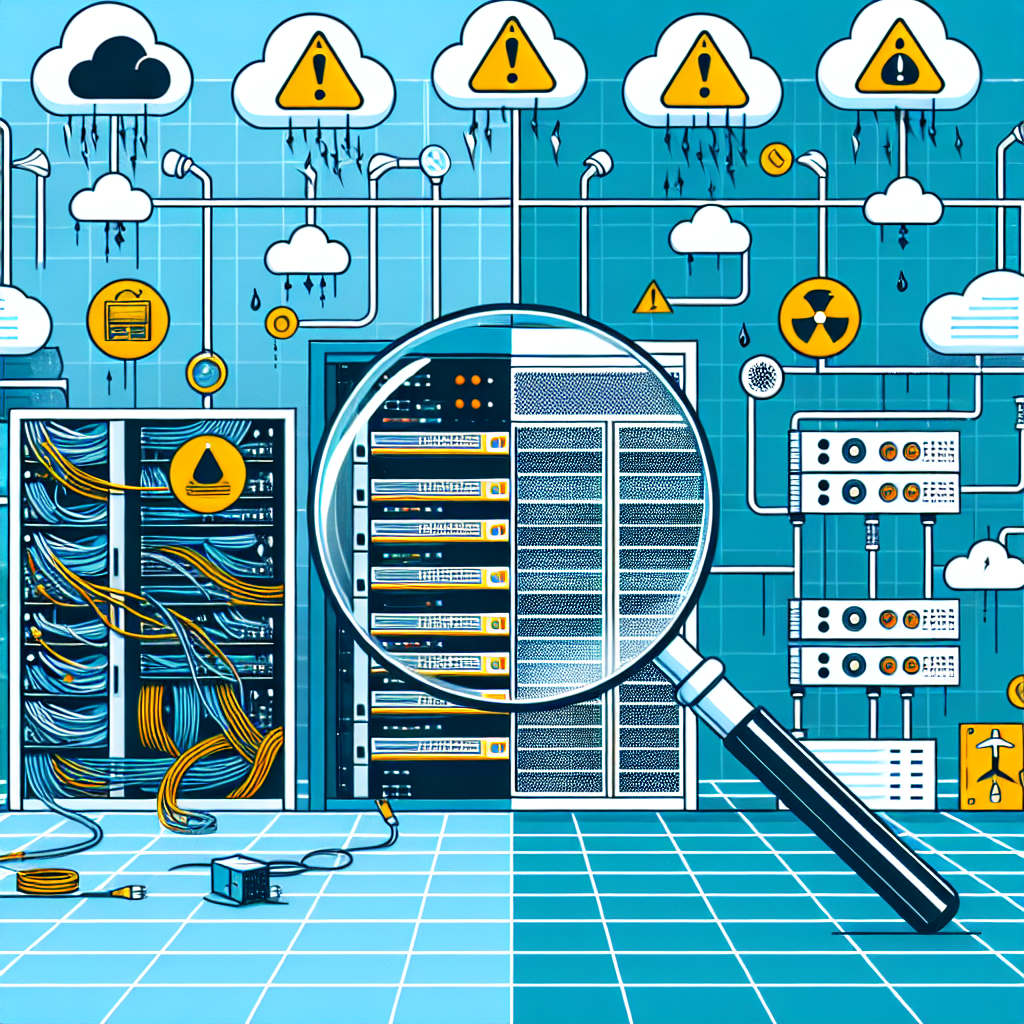Data centers are the backbone of modern businesses, housing and managing an organization’s critical IT infrastructure and applications. However, like any complex system, data centers are prone to a variety of problems that can disrupt operations and impact business continuity. In this article, we will explore some common data center problems and provide insights on how to address them from a problem management perspective.
1. Power outages: One of the most common issues that data centers face is power outages. These can be caused by a variety of factors, including utility failures, equipment malfunctions, and natural disasters. To address this problem, data center operators should invest in redundant power supplies, backup generators, and uninterruptible power supply (UPS) systems. Regular maintenance and testing of these systems are also crucial to ensure they will function properly when needed.
2. Cooling failures: Data centers generate a significant amount of heat due to the operation of servers and other IT equipment. Cooling failures can lead to overheating, which can damage equipment and cause downtime. To prevent cooling failures, data center operators should implement a robust cooling system that includes redundant cooling units, temperature monitoring, and hot aisle/cold aisle containment. Regular maintenance and cleaning of cooling equipment are also essential to ensure optimal performance.
3. Network issues: Data centers rely on a complex network infrastructure to connect servers, storage, and other devices. Network issues such as latency, packet loss, and downtime can impact the performance of applications and services. To address network problems, data center operators should implement network monitoring tools to identify issues proactively. Regular testing and troubleshooting of network equipment can help prevent outages and improve overall network performance.
4. Security breaches: Data centers store sensitive information and valuable assets, making them a prime target for cyberattacks. Security breaches can result in data loss, financial damage, and reputational harm. To address security issues, data center operators should implement robust security measures such as firewalls, intrusion detection systems, encryption, and access control. Regular security audits and penetration testing can help identify vulnerabilities and strengthen defenses against potential threats.
5. Hardware failures: Data center hardware, such as servers, storage arrays, and networking equipment, can fail unexpectedly due to manufacturing defects, wear and tear, or other factors. To address hardware failures, data center operators should implement a hardware monitoring system that tracks the health and performance of critical components. Regular maintenance, firmware updates, and hardware replacements can help prevent failures and ensure the reliability of data center infrastructure.
In conclusion, data center operators must be proactive in addressing common problems to ensure the reliability and availability of their IT infrastructure. By implementing robust systems and processes for power management, cooling, network monitoring, security, and hardware maintenance, data centers can mitigate risks and minimize the impact of potential issues. A problem management perspective emphasizes the importance of identifying, analyzing, and resolving problems in a systematic and proactive manner to ensure the smooth operation of data center operations.

Leave a Reply
You must be logged in to post a comment.